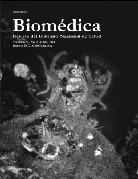Knowledge and risk factors related to Chagas’ disease in two Panamanian communities where Rhodnius pallescens is the main vector
Abstract
Introduction: The implementation of surveillance, control and prevention measures for Chagas’ disease requires an integrated approach. The sustainability of programs depends on community participation supported on a basic understanding of the problem.
Objective: To evaluate the knowledge of people interviewed which facilitates or limits the surveillance, prevention and control of Chagas’ disease in two endemic Panamanian communities where Rhodnius pallescens is the main vector.
Materials and methods: A questionnaire assessed the knowledge and risk factors related to Chagas’ disease in 201 people over 10 years of age from the endemic communities of Las Pavas and Lagartera Grande located on the western shore of Panama Canal. Additionally, with the help of the residents, the presence of triatomine bugs in 93 dwellings was evaluated during a year.
Results: Of those interviewed, 69.2% (139/201) had poor or very poor knowledge about Chagas’ disease. Nearly 93% (187/201) was exposed to moderate or high risk factors. Triatomine bugs were collected in 20.4% (19/93) of the evaluated homes; 80% (66/76) of them were R. pallescens. Significant association was found between the presence of triatomines inside the houses and precarious housing (p<0.01).
Conclusion: Despite having been exposed to health education-related programs, it is necessary to strengthen the basic knowledge about Chagas’ disease in the two communities before establishing prevention and surveillance measures which involve active participation of its inhabitants.
Downloads
Some similar items:
- Lorenzo Cáceres, José R. Rovira, José Calzada, Azael Saldaña, Evaluation of the toxic activity of the pyrethroid insecticides deltamethrin and lambdacyhalothrin in two Panamanian field populations of Rhodnius pallescens (Hemíptera: Reduviidae) , Biomedica: Vol. 31 No. 1 (2011)
- Azael Saldaña, José E. Calzada, Juan Garisto, Salomón Zebedes, Franklyn E. Samudio, Roberto Blandón, Óscar Avilés, Prevalence of autoantibodies against autonomic receptors in patients with chronic cardiopathies , Biomedica: Vol. 29 No. 1 (2009)
- Diana Carolina López, Carlos Jaramillo, Felipe Guhl, Population structure and genetic variability of Rhodnius prolixus (Hemiptera: Reduviidae) from different geographic areas of Colombia. , Biomedica: Vol. 27 No. 1esp (2007): Enfermedad de Chagas
- Andrea Arévalo, Julio César Carranza, Felipe Guhl, Jairo A. Clavijo, Gustavo Adolfo Vallejo, Comparison of feeding and defecation patterns of Rhodnius colombiensis and Rhodnius prolixus (Hemiptera, Reduviidae, Triatominae) under laboratory conditions. , Biomedica: Vol. 27 No. 1esp (2007): Enfermedad de Chagas
- Gustavo Adolfo Vallejo, Felipe Guhl, Julio César Carranza, Omar Triana, Gerardo Pérez, Paola Andrea Ortiz, Dairo Humberto Marín, Lina Marcela Villa, Jazmín Suárez, Isaura Pilar Sánchez, Ximena Pulido, Ingrid Bibiana Rodríguez, Leyder Elena Lozano, Daniel Alfonso Urrea, Fredy Arvey Rivera, César Cuba-Cuba, Jairo Alfonso Clavijo, Trypanosoma rangeli parasite-vector-vertebrate interactions and their relationship to the systematics and epidemiology of American trypanosomiasis , Biomedica: Vol. 27 No. 1esp (2007): Enfermedad de Chagas
- Andrea Arévalo, Julio César Carranza, Felipe Guhl, Jairo Alfonso Clavijo, Gustavo Adolfo Vallejo, Comparison of the life cycles of Rhodnius colombiensis Moreno, Jurberg & Galvão, 1999 and R. prolixus Stal, 1872 (Hemiptera, Reduviidae, Triatominae) under laboratory conditions , Biomedica: Vol. 27 No. 1esp (2007): Enfermedad de Chagas
- Andrea Arévalo, Julio César Carranza, Felipe Guhl, Gustavo Adolfo Vallejo, Electrophoretic patterns of salivary hemeproteins (nitrophorines) of Rhodnius colombiensis and R. prolixus (Hemiptera, Reduviidae, Triatominae) , Biomedica: Vol. 27 No. 1esp (2007): Enfermedad de Chagas
- Víctor Manuel Angulo, Lyda Esteban, Katherine Paola Luna, Attalea butyracea palms adjacent to housing as a source of infestation by Rhodnius prolixus (Hemiptera: Reduviidae) , Biomedica: Vol. 32 No. 2 (2012)
- Camilo Rubio, Ligia Inés Moncada, Marco Andrés Rojas, Alexander García, Feeding behavior of Rhodnius robustus Larouse, 1927 (Hemiptera, Reduviidae) under laboratory conditions , Biomedica: Vol. 33 No. 2 (2013)
- Víctor Manuel Angulo, Lyda Esteban, Plutarco Urbano, Eduwin Hincapié, Luis Alberto Núñez, Comparison of methods for the capture of triatomines (Hemiptera: Reduviidae) in Attalea butyracea palms in the Eastern Plains of Colombia , Biomedica: Vol. 33 No. 4 (2013)
| Article metrics | |
|---|---|
| Abstract views | |
| Galley vies | |
| PDF Views | |
| HTML views | |
| Other views | |


























